Misato Sato

Misato’s research aims to provide a robust evidence base on how regulated companies and sectors respond to energy and climate change policies, in an effort to help improve the design and effectiveness of current polices to better support industries in their low-carbon transition. Her recent work uses economic and econometric methods to evaluate how climate policies such as the EU Emissions Trading System affect the economic performance of cement, steel and other sectors, and how they influence business decisions or outcomes on the various dimensions of competitiveness such as trade, innovation, employment, costs, profitability and investment.
Misato currently holds an ESRC Future Research Leaders award for the project “Assessing the trade and innovation impacts of climate change policies: do they help UK firms or competitors abroad?” (2016-2018).
Background
Misato completed her Ph.D. in Environmental Economics at the LSE. Prior to her doctoral studies, she held roles as a research assistant at the Faculty of Economics, Cambridge University and Providence University, Taiwan. She has a MSc in Environmental and Resource Economics from UCL and an MA (Joint Hons) in Economics and Chinese from Edinburgh University.
Research interests
- Environmental and Resource Economics
- Environment and Trade
- Applied Econometrics
Research
Research - 2024
The authors of this paper construct a comprehensive database of filings and decisions relating to 108 climate lawsuits against US- and European-listed firms between 2005 and 2021. Read more

This study examines the influence of relative energy prices on the geographical distribution of industrial investments across 41 countries. Read more

This study examines the causal impact of compensation payments for indirect carbon costs on UK manufacturing plants. Read more

Research - 2023
This paper investigates whether financial markets respond to firms’ climate actions. Read more

This working paper presents evidence that litigation reduces firm value. This means that climate litigation should be considered a relevant financial risk by lenders, financial regulators and governments. Read more
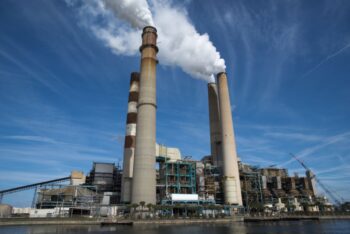
A growing literature suggests that carbon emissions are most efficiently reduced by carbon pricing. The evidence base on the effectiveness... Read more

Research - 2022
This paper provides evidence on the characteristics of low-carbon jobs in the United States and reveals the potential skills gaps and hiring difficulties emerging in specific labour markets affected by the low-carbon transition. Read more

The authors of this paper review the state of knowledge concerning international CO2 emission transfers associated particularly with trade in energy-intensive goods and concerns about carbon leakage arising from climate policies. Read more

This paper analyses the evolution of the EU ETS from a political economy perspective, emphasizing the interaction of economic principles and political interests at pivotal moments, and showing how each compromise changed the scope for future design choices. Read more

Research - 2020
This paper provides new evidence that financial markets value firms’ expansion into production of low carbon goods and services, but they remain cautious on divesting from the most polluting industries. Read more

This paper examines how diversifying and specialising production towards environmental goods and services is associated with the profitability and market valuation of firms. Read more

Research - 2018
The results of this paper show that upon deciding to invest, firms are attracted to regions that have lower energy prices. This supports arguments for better targeting leakage prevention measures to complement carbon pricing for energy-intensive industrial activities. Read more

– External link to paper – External link to data Energy price rises for industry are a major political concern.... Read more

Research - 2017
Benchmarks within emissions trading schemes are used to determine the level of free allocation of permits to sectors at the risk of carbon leakage. This paper analyses how the design of such benchmarks can impact on firms’ production decisions and create efficient incentives for production and technology choices. Read more

This article reviews the empirical literature on the impacts of environmental regulations on firms’ competitiveness as measured by trade, industry location, employment, productivity, and innovation. Read more

Abstract Output-based allocation (OBA) is one of the main options discussed for addressing carbon leakage in emissions trading systems. This... Read more

Research - 2016
International carbon offsetting can help reduce compliance costs in emissions trading schemes and at the same time support carbon mitigation... Read more

Research - 2015
This paper measures the response of bilateral trade flows to differences in industrial energy prices across countries. Using a rich... Read more
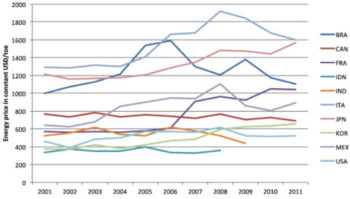
It is well known that discontinuous jumps or thresholds in tax or subsidies are socially inefficient, because they create incentives... Read more

This paper proposes an innovative solution to distribute free allowances to the cement sector under emissions trading systems. Read more
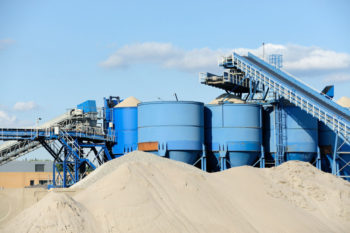
New research analsying major trends in global energy prices and the extent to which energy prices are a good proxy for emissions policy stringency. New dataset available. Read more

This paper measures the response of bilateral trade flows to differences in industrial energy prices across countries. Using a panel... Read more

Research - 2014
Headline issue Energy intensive and trade exposed sectors receive a proportion of their allowances (EUAs) for the European Union emissions... Read more

As increasingly complex modelling approaches to quantifying embodied carbon in trade have become popular, the lack of disaggregation has been identified as a key weakness. This paper quantifies embodied carbon in bilateral trade at the product level. Read more

As many countries, regions, cities, and states implement emissions trading policies to limit CO2 emissions, they turn to the European Union's experience with its emissions trading scheme since 2005. Read more
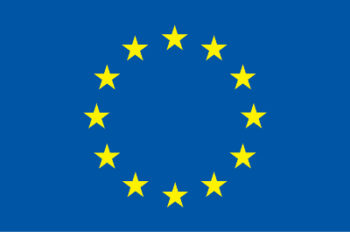
One of the central debates surrounding the design of the European Union Emissions Trading Scheme is the approach to address carbon leakage concerns. Read more
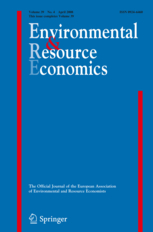
Research - 2013
Fankhauser, Samuel, Bowen, Alex, Calel, Raphael, Dechezlepretre, Antoine, Grover, David, Rydge, James and Sato, Misato (2013) Who will win the... Read more

This paper critically reviews the literature on embodied carbon in trade and evaluates our present empirical understanding of these flows. Read more

Working Paper 113 Abstract One of the central debates surrounding the design of the EU Emissions Trading Scheme is the... Read more

Working Paper 106 Abstract As an increasing number of countries, regions, cities and states implement emission trading policies to limit... Read more

Research - 2012
Working Paper 94 Abstract As the world considers greener forms of economic growth, countries and sectors are beginning to position... Read more

Working Paper 77 Abstract Measuring consumption-based emissions and the implied embodied emissions in trade (EET) has seen a resurgence in... Read more

Policy
Policy - 2025
This report proposes a ‘climate contribution’ as a practical, WTO-compliant solution to address carbon leakage risk, ensure investment stability, and support industrial decarbonisation in the face of global policy fragmentation. Read more
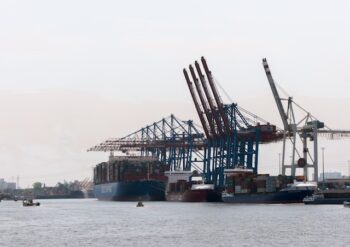
Policy - 2023
This report provides a detailed characterisation of low-carbon jobs from the last decade in the United States and the United Kingdom, bringing new evidence to support policy discussions. Read more

Policy - 2022
This submission to the UK ETS Authority consultation on ‘Developing the UK Emissions Trading Scheme (ETS)’ provides evidence on implementing a net zero consistent ETS cap, Free Allocation policy, the expansion of the UK ETS to additional sectors, and incorporating greenhouse gas removal into the scheme. Read more

Policy - 2021
There has been a resurgence in the debate around Carbon Border Adjustment Mechanisms (CBAMs) and the role they may play in preserving the effectiveness of climate action in high ambition countries. This report explores how the European Union’s CBAM, announced to come into force by the end of 2022, might affect the UK. Read more
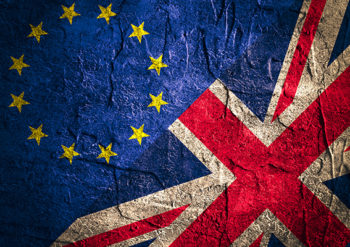
Policy - 2020
To tackle the challenges of climate change, more investment needs to be mobilised in low-carbon technologies and capital assets. This report examines the implications for firms as they diversify into the green marketplace. Read more

Policy - 2018
This special report for the LSE Growth Commission shows why it is sensible for environmental sustainability to be at the heart of the UK’s growth strategy and how this can be achieved, setting out recommendations for government across the areas of innovation, infrastructure, skills and cities. Read more

This paper responds to a question on overcoming potential barriers to the uptake of recoverable heat technologies in industry in the UK Government's call for evidence on the Industrial Heat Recovery Support programme. Read more

Policy - 2016
A project led jointly by Climate Strategies and DIW Berlin has been exploring whether inclusion of domestic sales of selected... Read more

Policy - 2015
This report provides a short summary of assessment methodologies that have been used to evaluate different operational aspects and outcomes of existing trading schemes, a literature which to date draws primarily from the EU ETS experience. Read more

This report analyses the effectiveness of climate and other related policies in the steel and cement sector over the last 15 years and explores what policy options are available for carbon intensive materials. Read more

Policy - 2014
Report shows that environmental regulations have only a a marginal impact on competiviveness and that the benefits often outweigh the costs Read more

Study demonstrates how a portfolio of low-carbon opportunities exists which can modernize the steel industry and achieve climate benefits at the same time. The study concludes that the European steel industry has to be highly energy-efficient and innovative to secure its future and that low-carbon transformation offers such a perspective. Read more

Cement industry top management now has little confidence in the EU ETS; structural reform is needed to help investment in... Read more

Neuhoff, K., Acworth, W., Dechezleprêtre, A., Dröge, S., Sartor, O., Sato, M., Schleicher, S., and Schopp, A. 2014. Climate Strategies.... Read more

Policy - 2013
Prepared for the Green Economy Policy Commission (GEPC), August 2013. Read more

Netherlands Environmental Assessment Agency, 2013. Download paper Read more

Data
Data - 2015
New research analsying major trends in global energy prices and the extent to which energy prices are a good proxy for emissions policy stringency. New dataset available. Read more

Data - 2014
As increasingly complex modelling approaches to quantifying embodied carbon in trade have become popular, the lack of disaggregation has been identified as a key weakness. This paper quantifies embodied carbon in bilateral trade at the product level. Read more

Events
Events - 2023
Events - 2022
Events - 2018
News
News - 2025
In this commentary article Misato Sato calls for a bridging policy instrument in the light of the proposed two-year delay to the implementation of the EU’s Carbon Border Adjustment Mechanism. Read more

This article discusses a number of current legal and regulatory issues related to climate change and ESG. Read more

FT Sustainable Views, 31 January 2025 Read more
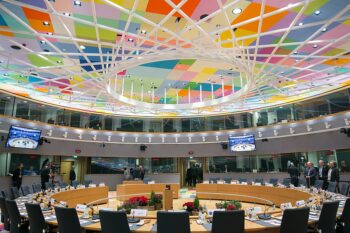
News - 2023
FT, 30 November 2023 Read more

A paper by researchers from the Grantham Research Institute at LSE has been awarded the Best Paper Prize at the 6th annual conference of the Global Research Alliance on Sustainable Finance and Investment (GRASFI). Read more

Long read on whether carbon markets can accelerate progress towards net zero. FT, 15 June 2023 Read more

This article which reports on how an apparent shortage of green skills in the workforce may undermind climate targets. The... Read more

Fossil fuel companies register drop in value after litigation or unfavourable judgments. Misato Sato is quoted in the piece. Guardian... Read more

News - 2022
The high quality of research by the London School of Economics and Political Science has been recognised in the results of the... Read more

News - 2021
Conflicting evidence has been presented on carbon leakage, caused largely due to misconceptions over the term’s meaning. The confusion is worth disentangling because it is obscuring the debate on how to act, argue Misato Sato and Josh Burke. Read more

News - 2018
Misato Sato, Assistant Professorial Research Fellow, at the Grantham Research Institute has received an award for the Young Economist Best... Read more

News - 2017
President Trump claimed that the Paris Agreement on climate change “disadvantages the United States to the exclusive benefit of other countries". This commentary highlights a number of recent research papers which show no evidence for such claims. Read more

News - 2016
UK Data Service – Case Study, 18 July 2016 Read more

This commentary reflects on a recent report which looked at why some companies offset their emissions outside of Europe and why others don’t. Read more

With MEPs currently considering the reform of the European Union Emissions Trading System (EU ETS) for Phase 4 (2021-2030), Misato Sato makes the case for revised free allocation of emissions permits. Read more
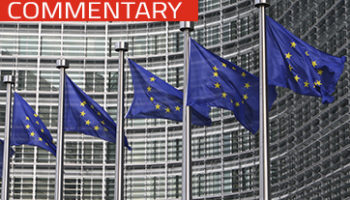
News - 2015
Business Green, 8 July (article requires subscription to access) Read more

News - 2014
If environmental red tape is the source of so many economic woes, why is the evidence of the harm they cause so sketchy? Read more

Dr Antoine Dechezleprêtre and Dr Misato Sato explain the findings of their latest report, ‘The impacts of environmental regulations on competitiveness’ published by the Grantham Research Institute on Climate Change and the Environment at London School of Economics and Political Science. Read more

Grantham Institute report says environmental regulations can drive economic growth by encouraging business innovation Read more


